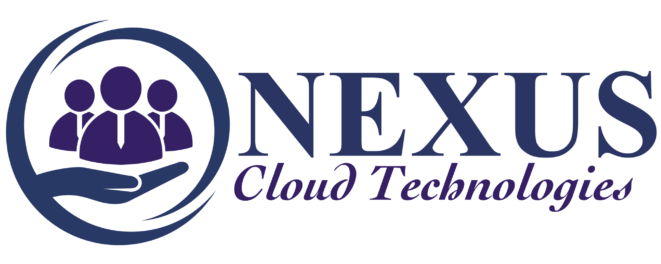
Enhancing Customer Service Management with Salesforce Service Cloud
TeleLink Solutions is a leading telecommunications provider, offering a wide range of services including mobile, internet, and digital television to millions of customers across the country. Known for its cutting-edge technology and expansive network, TeleLink Solutions strives to provide exceptional service to its diverse customer base.
Overhauling Customer Service Operations for Enhanced Efficiency
The Challenge
TeleLink Solutions was facing significant challenges in managing its customer service operations. The company’s existing system was outdated and unable to keep up with the growing volume of customer inquiries and service requests. This led to long response times, frequent service errors, and declining customer satisfaction.
Disjointed Customer Service Channels:
TeleLink’s customer service operations were scattered across multiple channels, including phone calls, emails, and social media platforms. This fragmentation created significant challenges in delivering consistent service to customers. Each channel operated in isolation, leading to a lack of unified customer data and making it difficult for service representatives to access a complete history of interactions. This not only resulted in inconsistent and disjointed customer experiences but also hindered the company’s ability to respond promptly and effectively to customer inquiries. The absence of an integrated system meant that vital information was often lost or duplicated across channels, exacerbating the inefficiencies and leading to customer frustration.
Inefficient Case Management:
The existing customer service system at TeleLink was outdated and lacked the advanced tools necessary to manage and prioritize cases efficiently. As a result, the company frequently experienced backlogs, with numerous cases remaining unresolved for extended periods. This inefficiency in case management not only slowed down the resolution process but also eroded customer trust and loyalty. The inability to track and escalate issues effectively led to repeated customer complaints and dissatisfaction, ultimately impacting the company’s reputation. TeleLink’s support team was overwhelmed by the volume of cases, and without a streamlined system in place, they struggled to address customer needs in a timely and satisfactory manner.
Limited Self-Service Options:
TeleLink’s absence of a robust self-service portal posed significant challenges for both customers and the support team. Without a dedicated platform for customers to independently access information, troubleshoot issues, or manage their accounts, the company was heavily reliant on direct customer support. This over-reliance resulted in increased pressure on the customer service team, leading to longer wait times and higher operational costs. The lack of self-service options not only inconvenienced customers who preferred quick and easy solutions but also prevented TeleLink from optimizing its support resources. As customer expectations for self-service capabilities grew, TeleLink’s inability to provide these options became a glaring gap in their service offerings, further contributing to customer dissatisfaction and increased operational burdens.
Nexus Cloud Technologies’ Tailored Training Solutions for Healthcare Compliance
The Partnership
Nexus Cloud Technologies formed a strategic partnership with TeleLink Solutions to revolutionize their customer service operations through the deployment of Salesforce Service Cloud. This powerful customer service management platform was chosen for its ability to unify and streamline TeleLink’s fragmented customer service channels. The primary goals were to enhance overall customer satisfaction, improve response times, and significantly reduce the operational costs associated with customer service. Nexus’s expertise in Salesforce implementations made them the ideal partner for this critical transformation, and the collaboration was geared towards creating a seamless, efficient, and customer-centric service environment at TeleLink.
Comprehensive Needs Assessment:
To ensure a successful implementation, Nexus began with a meticulous and in-depth assessment of TeleLink’s current customer service operations. This comprehensive evaluation involved working closely with TeleLink’s support teams to identify key pain points and inefficiencies. Nexus analyzed customer interaction data across all channels to understand the behavior patterns and preferences that were driving customer service challenges. Additionally, they scrutinized the existing workflows to pinpoint the processes that were contributing to delays, mismanagement, and customer dissatisfaction. This thorough assessment provided Nexus with valuable insights into the root causes of TeleLink’s service issues, laying the groundwork for a targeted and effective solution.
Tailored Implementation Strategy:
Armed with a deep understanding of TeleLink’s unique challenges, Nexus developed a highly customized implementation strategy leveraging the robust capabilities of Salesforce Service Cloud. This strategy was meticulously tailored to address the specific needs identified during the assessment phase. Nexus focused on seamlessly integrating all of TeleLink’s customer service channels into a unified platform, ensuring that data from phone calls, emails, social media, and other touchpoints could be accessed and managed centrally. Additionally, they optimized the case management processes by introducing automation and intelligent prioritization features, which significantly reduced backlogs and improved resolution times. To further empower customers and reduce the burden on the service team, Nexus also introduced a comprehensive self-service portal, enabling customers to resolve common issues independently. This tailored approach not only transformed TeleLink’s customer service operations but also set the stage for long-term improvements in customer satisfaction and operational efficiency.
The Results
Improved Customer Satisfaction:
The integration of Salesforce Service Cloud resulted in faster response times, more accurate service, and a seamless customer experience across all channels. Customer satisfaction scores improved significantly, with customers praising the new self-service options and the efficiency of TeleLink’s support team.
Increased Operational Efficiency:
The optimized case management system and self-service portal reduced the workload on TeleLink’s customer service team, allowing them to focus on more complex issues and deliver higher-quality service.
Cost Reduction:
By reducing the reliance on direct support and streamlining customer service operations, TeleLink was able to lower its operational costs while still improving service levels.
Client Feedback






